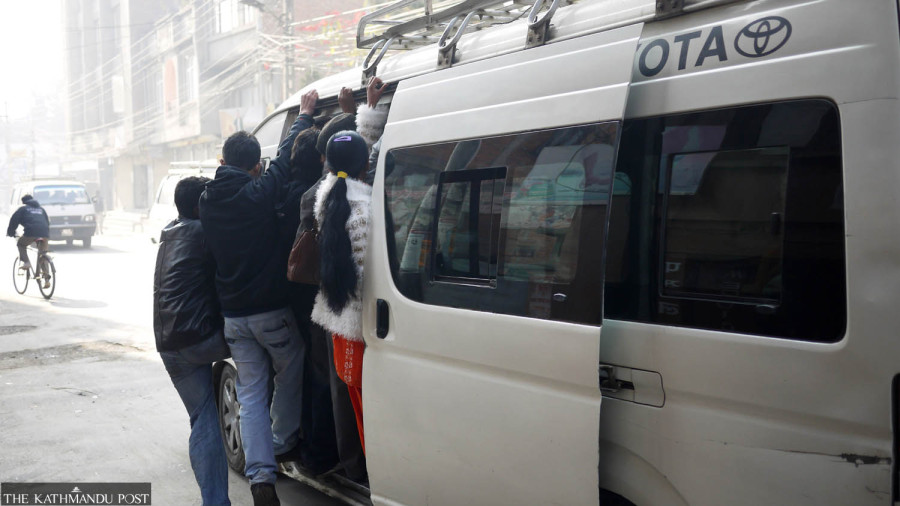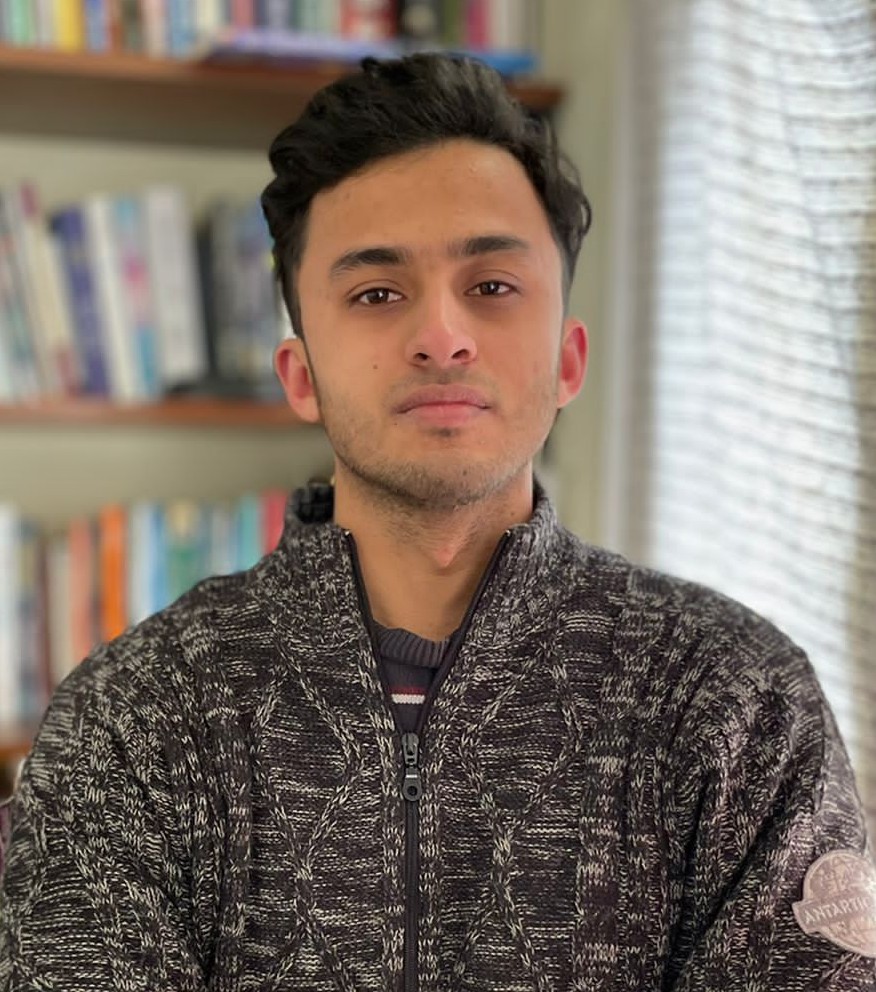Fiction Park
On a public commute to Hattiban
The superpower of bus conductors is that they always see the bus half-empty when others see it completely full.
Sarans Pandey
I use public transport very often, and when someone asks me how often, I tell them, “Enough times that I’m now convinced that the microbus seat for two is meant for three people.” Such is the power of bus conductors in Nepal—they can define or redefine conventions and sometimes even overrule government impositions regarding the nomenclature of places along their route.
Even years after Ratna Park was officially renamed, it continues to be recognised as its former self—RNAC—and will continue to do so as long as the all powerful union of bus conductors decides otherwise. I remember a time not too long ago when I was commuting from Ratna Park, and the bus crossed Kupondole when a young girl seated beside me asked to be dropped in front of Nabil Bank.
She offered the conductor Rs20 and mentioned she had a student card. Now there are many varieties of commuters on the bus, from the guy who is on a video call without earphones to the girl filming her TikTok live session, to profane kids who talk as if there’s no one else on the bus to the old man who says the monarchy was a lot better than the current mess. But the variety I’m talking about consists of those who tend to hand in the fare and claim the discount but don’t bother to provide evidence until they are asked—mainly because they don’t have any.
Sometimes it works; sometimes, it doesn’t. But in that particular instance, I would have bet my house, which I don’t yet own but will inherit thanks to the tradition I so love to criticise, that the bus conductor would demand her ID even though a young man had just gotten off without showing his.
From what I have observed—and I did observe this quite meticulously during the period in which my college ID expired and I undertook a feasibility study of whether I’d be able to get away with showing an expired one—if it is a girl claiming discount, the bus conductor is more likely to ask for verification. Such is the power vested in bus conductors that they can quite easily figure out the name and education institute of the pretty stranger you cross eyes with.
The bus stopped, and the conductor looked on as he watched the girl whose name he now knew hop off and walk away, first with a smile and then resignation. The former, perhaps because he thought that by knowing her name, he was rewarded with a glimpse of familiarity that distinguished him from other strangers who accompanied her on the ride. And the latter because he knew the familiarity wouldn’t bridge the great divide between their worlds. I looked through the window, but there was no sign of the bank or any bank for that matter, and the only thing that suggested it existed at some point was the green door beside which there was Nabil Bank’s ATM.
However, it’s not like the absence of the bank made any difference. The stop was the same, the fare was consistent, and the commuters weren’t bothered. After all, what is there in a name? As the bus moved through Pulchowk towards Jawalakhel, and I looked at the signboards of mobile devices, restaurants and clothing lines, I was forced to acknowledge that there must be something, even though I couldn’t pinpoint what. The idea is perhaps to create distinct imagery in people’s minds so that they stand out from the rest. Perhaps a name is not just a name. The name is an image. The name is a reflection. The name is projection. And it isn’t enough just to be recognised, but to be recognised preferably and perennially—the subconscious human pursuit of immortality.
There was a student couple seated ahead of me, wearing red sweaters and white shirts that likely wouldn’t feel the iron throughout winter, and I wondered if they referred to each other with the names mentioned in the ID card dangling over their necks, the names their parents must have pondered over at great lengths. Or perhaps they used something acquired later in life, as I recalled my days at the boarding school. So rarely was my real name pronounced that I wondered why any Pandey parent would even bother naming their child before the age of twenty-one. Initially, I resisted but later accepted the fact: you can’t choose neighbours, and you can't choose your nicknames.
The microbus stopped at Lagankhel in front of a young woman who hesitantly said, “This is too full,” to which the conductor replied in a single breath while making animated gestures, “No, there’s plenty of space. You, standing in front, please move a few steps behind. See?”
Such is yet another power of bus conductors that they always see the bus half empty when others see it full. The bus picked up speed and, after crossing Khumaltar, passed a spot called the White House. I’ve always assumed it to be the name of a school, as Nepali schools, for some reason, are notorious for plagiarising anything that remotely sounds foreign. I remember seeing a college named after a US state with the lowest high school graduation rate. But who cares.
Soon after, the bus approached Hattiban and dropped all of us. The bus conductor started mumbling numbers as he started his count, the driver looking eagerly at him through the rearview mirror. I didn’t know how much it was, but I could tell it was a tiny fraction of what Nabil Bank pays for marketing campaigns that buzz and disappear. “Not bad,” said the conductor as they lined up for another trip, a cycle that would repeat till about eight at night. And then again and again into perpetuity.




 17.8°C Kathmandu
17.8°C Kathmandu












